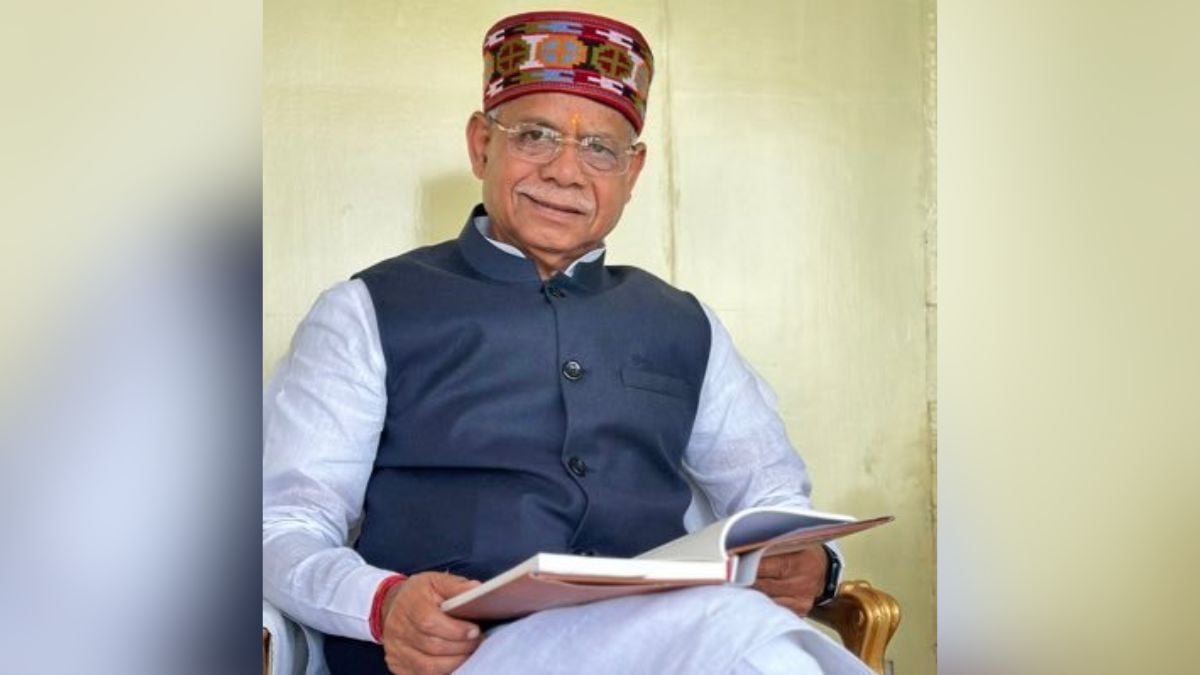A peculiar trend has emerged in Indian politics, where governors appointed by center are frequently at loggerheads with chief ministers of non-BJP states, despite their constitutionally defined roles. States like West Bengal, Tamil Nadu, Kerala, and Telangana have witnessed public spats between governors and elected governments, primarily over governance, appointments, and legislative matters.
Himachal Pradesh has now joined this list, as tensions escalate between Governor, Shiv Pratap Shukla and key state ministers, including Tribal Affairs, revenue and horticulture minister, Jagat Singh Negi and Agriculture Minister Chander Kumar. The disputes revolve around Nautor land allotments to tribals and the appointment of the Vice-Chancellor (VC) of Chaudhary Sarwan Kumar Himachal Pradesh Agriculture University Palampur, raising concerns about administrative harmony in the hill state.
Ministers Resentment Over Key Issues
The growing discord between Himachal Pradesh’s government and the Raj Bhavan has escalated into a direct confrontation. Tribal Affairs Minister, Negi and Agriculture Minister Kumar have openly challenged the Governor on critical state matters, underscoring the broader friction between the constitutional head of the state and its elected representatives.
At the center of the dispute with the Tribal Affairs Minister is the contentious issue of ‘Nautod’ (non-fragmentation) land allotments after suspending certain provisions of the Forest Conservation Act (FCA), 1980. Nautor refers to wasteland owned by the central government, located outside towns, which is designated as protected forest land. Its use requires approval from a competent authority and more than 12,742 cases are pending in the state. The state government recently passed a bill to simplify the allotment process for tribals, fulfilling a key election promise aimed at empowering marginalized communities in regions like Lahaul-Spiti, Kinnaur, and Pangi. However, Governor Shukla has withheld his assent, citing concerns and seeking clarifications. He argues that while the bill may appear politically appealing, it demands deeper scrutiny to ensure compliance with constitutional provisions and environmental safeguards. But he has assured the approval of the bill after
Minister Negi, however, sharply criticized the Governor, accusing him of obstructing a progressive reform that directly impacts thousands of tribal families. According to Negi, ‘Nautor’ allotments are essential for the socio-economic upliftment of tribal communities, and the Governor’s reluctance undermines the elected government’s mandate. He also pointed out that similar amendments were approved by three previous governors, questioning the current delay? Negi stated that the Government’s demand is entirely constitutional, citing Article 5 of the Indian Constitution, which allows the Governor to make decisions for tribal areas in consultation with the Tribal Advisory Council and on the recommendation of the state cabinet. He also highlighted past instances where provisions of the Forest Conservation Act (FCA) were suspended in tribal areas. Between 2016 and 2018, and again in 2020, during the BJP government led by Jai Ram Thakur, nine provisions of the FCA were suspended to provide land to landless individuals in tribal areas. However, Negi criticized the BJP government for extending the benefit to just one person despite the suspension which was denied by the BJP.
The Governor, however, defended his position, asserting that his duty extends beyond endorsing poll promises to safeguarding the rule of law and the interests of the state. Raj Bhavan, he argued, must evaluate the legal and constitutional viability of bills passed by the legislature. The Governor’s office also highlighted gaps in the bill, including ambiguities in implementation mechanisms and potential conflicts with forest conservation laws.
Now BJP leaders have jumped the fray to justify the governor’s decision to hold back the bill. The Congress government, along with its chief minister and ministers, has been completely exposed before the people of the state, claimed the former chief minister, Jai Ram Thakur. He criticized the government’s two-year tenure, calling it a “government of lies” due to its actions. Echoing the sentiment, BJP MP and former state president and MP, Suresh Kashyap accused the government of deflecting accountability. “Instead of addressing the queries raised by the Raj Bhawan, they are attempting to politicize the issue,” he said.
VC Appointment Sparks Political Row
Another flashpoint in the ongoing tussle was the Agriculture Minister’s previous clash with the Governor over the appointment of the Vice-Chancellor for Palampur Agriculture University. The Governor had objected to the constitution of the selection committee and quoted the stay granted by high court as reasons for delay in appointing new VC.
Labelling the Governor’s action as “an affront to the federal spirit of governance,” Kumar argued that such unilateral decisions undermine the autonomy of state institutions. The Governor, on the other hand, justified his decision by citing his constitutional authority as the university’s Chancellor and emphasizing the importance of academic merit. The controversy compelled Chief Minister, Sukhvinder Singh Sukhu to intervene personally, rushing to Raj Bhavan in an attempt to mediate and resolve the impasse. Finally, Dr Naveen Kumar was appointed as new VC who took over as new VC on August 01, 2025 ending the tussle.
A Broader Political Tussle
These confrontations are emblematic of a larger pattern seen in states where governors and non-BJP chief ministers often find themselves at odds. In Himachal Pradesh, the opposition Bharatiya Janata Party (BJP) has seized the opportunity to criticize the Congress government, accusing it of failing to maintain administrative harmony and fulfil its promises.
For the Congress government in this hilly state, these disputes come at a politically sensitive juncture, with tribal and farming communities closely observing the developments. The Chief Minister faces the challenging task of balancing the government’s position with the need to maintain a functional relationship with the Governor’s office. How he manages this delicate equation will significantly influence the political narrative in Himachal Pradesh in the months ahead.
(Writer is senior political analyst and strategic affairs columnist based in Shimla)
